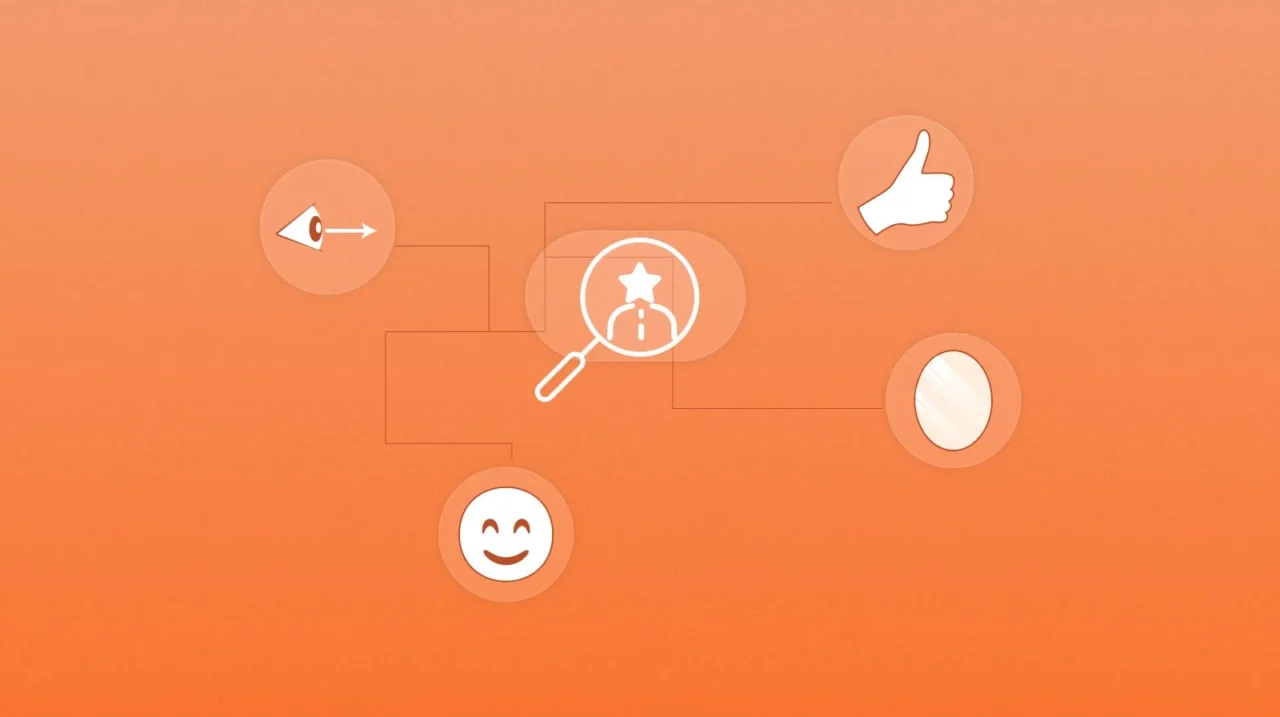What Your Body Language During Interview Says to Your Hiring Manager (2025 Guide)


The Unspoken Interview: Why Body Language Matters More Than You Think
You’ve practiced your answers, chosen the perfect outfit, and rehearsed your elevator pitch. But your words are just part of the story. Nonverbal communication—your body language—can speak louder than anything you say. In fact, research shows that up to 93% of communication is nonverbal (Science of People). For hiring managers, every gesture, posture, and micro-expression is a window into your confidence, professionalism, and fit for the role.
In this comprehensive guide, we’ll reveal the science, psychology, and practical skills behind effective body language for job interviews. Plus, discover how Huru.ai’s instant feedback helps you master nonverbal cues, whether you’re preparing for in-person or virtual interviews.

Decoding Nonverbal Cues: What Hiring Managers Notice First
- Posture: Slouching signals disinterest or lack of confidence; an upright posture exudes engagement and readiness.
- Eye Contact: Steady eye contact shows you’re attentive and trustworthy, but beware of staring—it can feel aggressive.
- Handshake: In cultures where it’s customary, a firm (not crushing) handshake reflects self-assurance.
- Facial Expressions: A natural, genuine smile communicates openness and positivity, while frowning or tight lips suggest tension or discomfort.
- Gestures: Purposeful hand gestures can make your answers more dynamic, while fidgeting reveals nerves.
- Personal Space: Respect boundaries; being too close may be perceived as intrusive.
Hiring managers interpret these cues in the first few seconds—so your body language really is your first impression!
💡 Key Takeaway
Nonverbal cues like posture, facial expressions, and eye contact can instantly influence how a hiring manager rates your confidence and fit—even before you answer the first question.
Beyond the Smile: Common Body Language Mistakes to Avoid
- Fidgeting with hands or objects (pens, rings, papers) signals anxiety.
- Crossed arms can come across as defensive or closed off, even if you’re just cold!
- Poor eye contact suggests lack of confidence or honesty.
- Staring at the floor or ceiling appears disengaged.
- Overly animated gestures can be distracting or overwhelming.
Many candidates aren’t even aware of these habits—practicing mock interviews and recording yourself (or using AI-powered feedback from Huru) can help you spot and correct these mistakes before the big day.
💡 Key Takeaway
Self-awareness is your superpower! Regular practice and feedback help you eliminate negative nonverbal habits and reinforce positive ones.
Cultural Differences: When Body Language Speaks Different Languages 🌍
Body language isn’t universal. What seems confident in one culture might appear aggressive or disrespectful in another. For example:
- In some cultures, direct eye contact is valued; in others, it’s seen as confrontational.
- Personal space expectations vary widely around the world.
- Gestures like thumbs-up can be positive or offensive depending on locale.
Research your interviewer’s background if possible or ask about local business etiquette for international roles. Global companies may have a hybrid culture. When in doubt, err on the side of professional openness and respect.
💡 Key Takeaway
Before a global or cross-cultural interview, brush up on local etiquette. Flex your body language to communicate openness and adaptability.
Body Language in Virtual Interviews: Nailing the Digital First Impression
With remote work on the rise, virtual interviews are the new normal. Your body language on camera matters just as much as in person—sometimes more! Here’s how to shine on screen:
- Camera eye contact: Look at the lens, not your own image, to simulate real eye contact.
- Lighting and framing: Make sure your face is well-lit and you’re centered in the frame.
- Minimize distractions: Tidy your background and silence notifications.
- Stay expressive: Don’t let your face freeze—smile, nod, and use natural gestures.
- Posture counts: Sit up straight, feet on the floor, feet visible if possible.
Want to see how you appear on video? Record a mock interview on Huru for instant, objective feedback on your nonverbal communication.
💡 Key Takeaway
Treat every virtual interview like an in-person one—your energy, posture, and eye contact are just as crucial onscreen.
Real-World Scenarios: From Nervousness to Confidence (and How to Get There)
Let’s walk through some typical interview situations and how your body language can make or break them:
- The Waiting Room: Even before the interview starts, sit upright, relax your shoulders, and avoid hunching over your phone.
- The Handshake Moment: (for in-person) Make eye contact, smile, and offer a confident but not overpowering grip.
- Handling a Tough Question: Pause, breathe, keep your posture open, and use a slight nod or smile to buy thinking time.
- Closing the Interview: Stand smoothly, gather your things calmly, and thank the interviewer with a warm smile.
Practice these moments with a friend or on Huru’s unlimited practice mode to nail your nonverbal delivery.
Q&A: Body Language Myths and FAQs
Q: Can good body language really outweigh a weak answer?
A: While body language alone won’t land you the job, it can boost the perceived strength of your answers by making you seem more confident, trustworthy, and likeable.
Q: I’m nervous—I can’t control my fidgeting. What should I do?
A: Practice is key! Use mock interviews with Huru’s instant AI feedback to spot and correct nervous habits. Also, deep breathing and grounding techniques can help you stay calm.
Q: Is virtual body language really that important?
A: Yes! Without physical presence, your facial expressions and posture on camera are even more important to build rapport and connection.
Q: Can I be too enthusiastic with my gestures?
A: Overly animated gestures can distract the interviewer. Aim for purposeful, controlled movements that enhance—not overshadow—your words.
How Huru.ai Helps You Master Interview Body Language
- Unlimited Practice: Record yourself answering real interview questions as many times as you like.
- Instant AI Feedback: Get actionable analysis on your eye contact, facial expressions, posture, and even virtual presence.
- Track Progress: See improvement over time and target specific nonverbal skills.
- Virtual Interview Ready: Practice for remote interviews and get feedback on your digital body language.
Ready to see where you shine and where you can improve? Try Huru.ai for free now.
Watch: Body Language Mastery for Job Interviews (Video)
Further Reading: Build Your Interview Confidence
- From Campus To Career: Ace Your First Job Interview With Huru Ai
- Speech Therapist Interview Questions: Communicate Your Passion for Language
- The Future Of Hiring: How AI Is Transforming The Job Interview Landscape
- Living Your Principles: Discussing Your Core Values In A Job Interview
- Intonation For Better Job Interview
About the Author
Elias Oconnor is a Content Writer at Huru.ai, specializing in career development strategies and interview mastery. With a passion for empowering job seekers through actionable, science-backed advice, Elias combines deep market research with practical insights so every candidate can succeed. Find more of Elias’s work on the Huru Blog.


 Jun 25,2022
Jun 25,2022  By Elias Oconnor
By Elias Oconnor